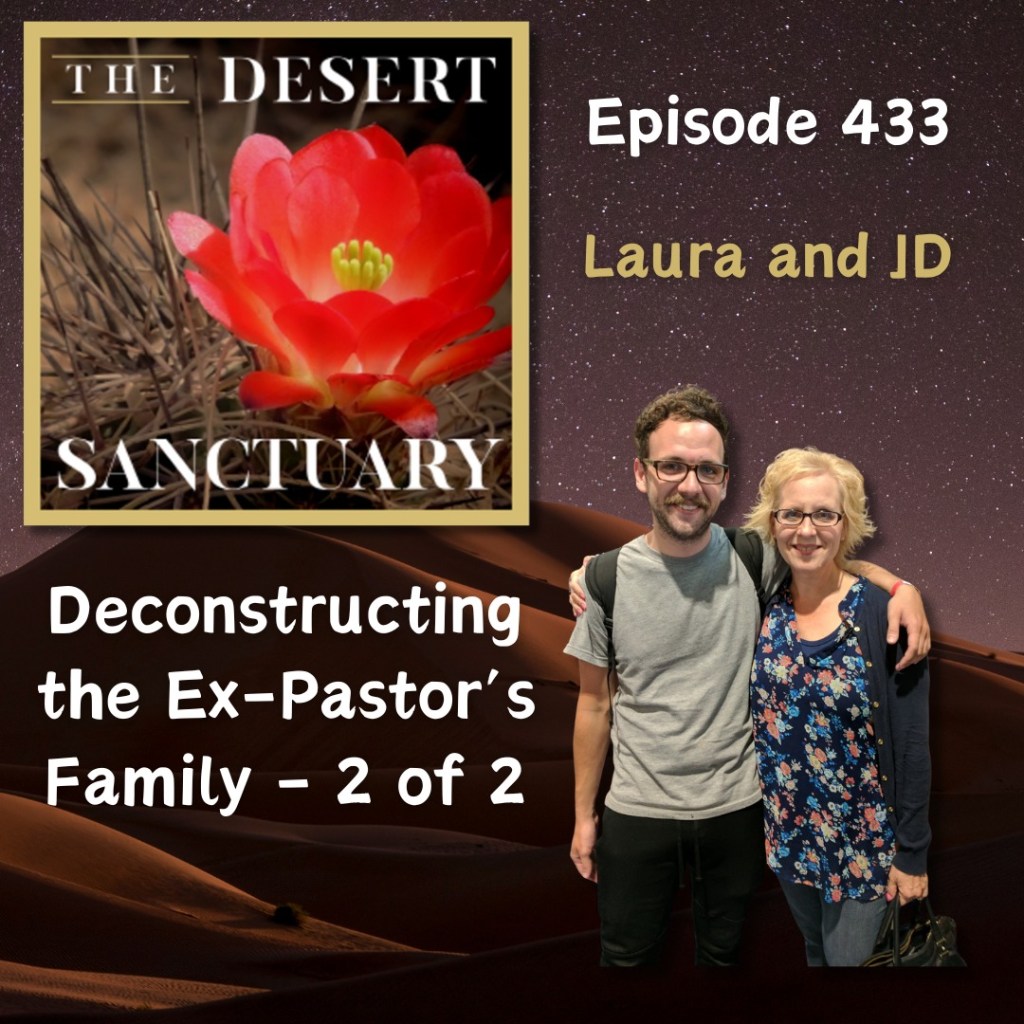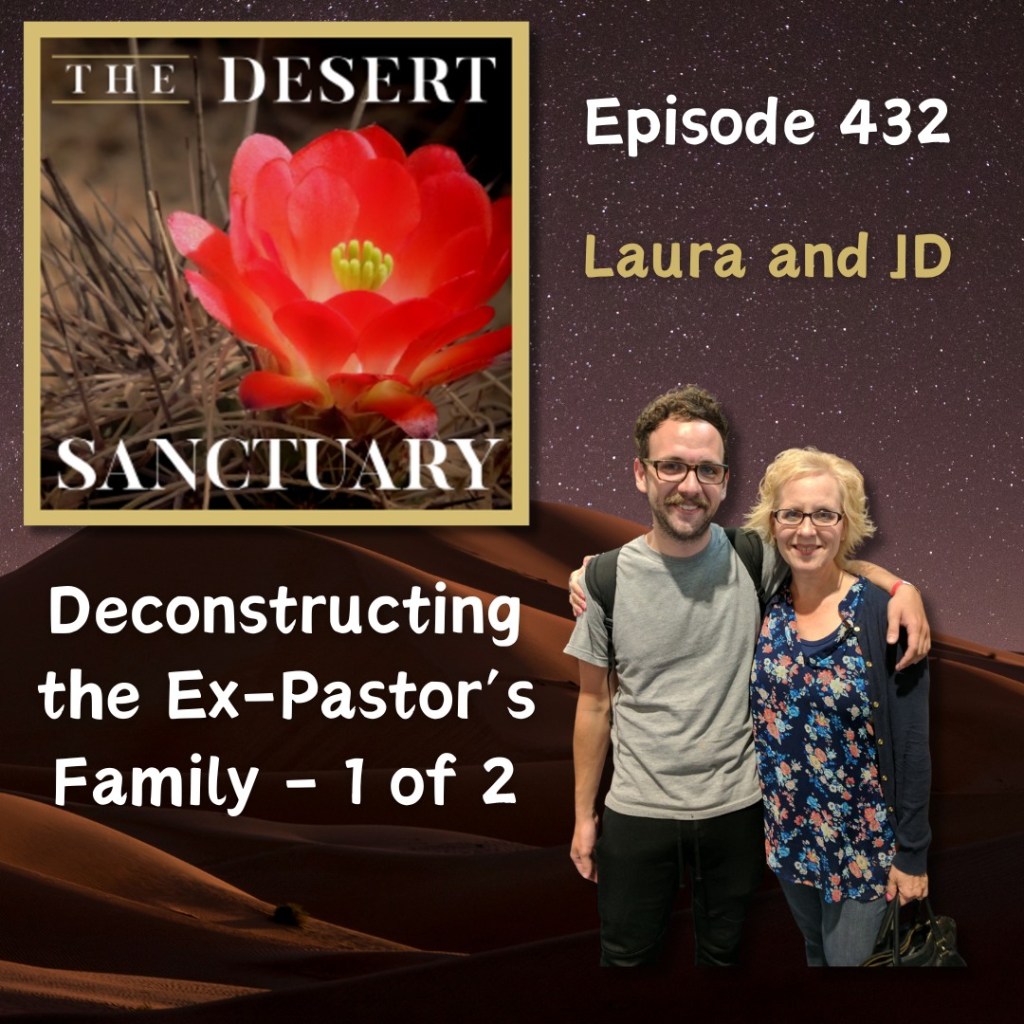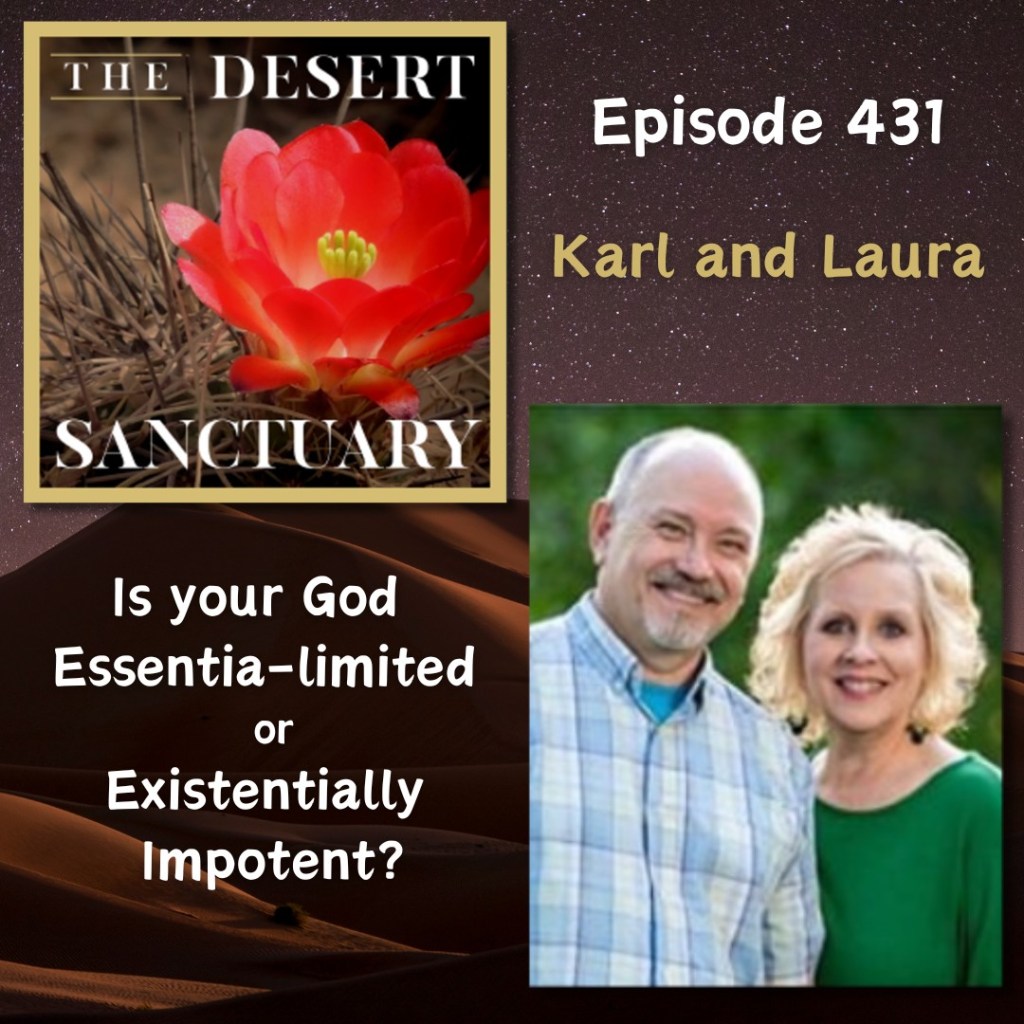Being and Becoming – Part 2

From our new book, Evolving From Religious Trauma. June 4th)
Listen to this blog – AI-Generated
Laura
IMPOSTER SYNDROME!! Sitting down to write this chapter seems to be more challenging than the rest. Karl and I have been going back and forth discussing my feelings on “being and becoming.” I think my writer’s block is due to imposter syndrome. I struggle to see that anything I say on this topic, let alone this book, is of value. I come by this naturally. I have always been a behind-the-scenes sort of person. As a small child, I struggled with ear infections so severely that it affected my hearing, so it just became easy for me to pretend I heard or understood rather than ask someone to repeat themselves for the millionth time. I just learned to be quiet and fade into the background, seeing what I had to say or contribute as “less than.” I was in no way feeling sorry for myself; this was just a safer way of being.
This served me well in our church ministries. When Karl was called into the ministry, I honestly had no feelings one way or another. I was not a typical pastor’s wife wannabe who jumped for joy when he broke the news to me. I was like, “ok…sounds good.” I also did not put up much resistance. I only told him I would not be THAT pastor’s wife who played the piano or the organ or led all the women’s ministries. In other words, let me just fade into the background, and this could be a sweet gig. It is incredible to me now, looking back, that this only reinforced my feelings of not belonging, not being heard, and not having a voice. In a way, I brought it on myself, but on the other hand, our church denomination was more than happy to let me assume the role of less than.
In Karl’s portion of this chapter, he discussed two elements that can inhibit belonging and one that can enhance it: quitting, numbing, and facing pain.
I have never been a quitter in the physical sense of the word. I have not just thrown my hands up and audibly said, “I quit!” while stomping off and cussing up a blue streak. The way quitting shows up for me is very subtle. It is more of an emotional quitting. It is extremely easy for me to become noticeably quiet and emotionally check out when things get complicated. You might not know it because I am physically still present, but emotionally, I am done. This happened in church for me.
In our book, Out into the Desert: Thriving Outside of Organized Religion, I spoke at length about the harm I experienced in the church. It became pretty easy for me to simply go through the motions. I would show up, sing in the worship band, pray, and even sit in the front row and make eye contact, nodding my head in affirmation of whatever Karl was preaching that week. However, inside, I was hollow and void of any emotion. It was as if I was back in my younger days, unable to hear but did not care to ask anyone to repeat or explain what was happening. Emotionally, I had quit. I could not give any more of myself.
Typically, when someone quits something, they physically stop doing it. If you leave your job, you will no longer be there. If you quit a sport, you stop playing it. The thing about emotionally quitting is that I was still attending these things and going through the motions. It was excruciatingly painful, and honestly, it still is as I write about it. No matter how much I would try to distance myself emotionally, the fact that I was still a part of it only created deeper wounds. Sometimes quitting is a healthy choice, but I realized there needs to be a clean break where deep work can happen. Otherwise, it is an exercise in futility.
When you cannot quit your environment, which for me was attending church, the next best thing is to numb. I have had to take a hard look at this. Numbing is the act of not feeling or not dealing with your given situation. While it can take many forms, I do not numb with the typical things you might associate with numbing: alcohol, drugs, food, etc. Instead, for me, the way I numb or emotionally take myself out of a situation that is causing anxiety is to stay busy.
Whenever we feel stuck, trying to find a way out of that situation is human nature. However, what if we cannot? What if we feel as if we are entirely responsible for someone else’s success and that we cannot express our truth? That is how church felt to me. I felt very responsible for Karl’s ministry. I was the pastor’s wife, and while I always said aloud that I would not be the “typical pastor’s wife,” it was a slow fade into that life. I started to feel very much responsible for making or breaking his ministry. There were unspoken rules that changed all the time. I could not keep up with them.
So, I kept myself busy to make sure I did not accidentally break these unwritten, unspoken, vague, at best, rules. Nothing was off limits, but my doing centered around keeping the house organized, raising three children, being active in their various schools, and participating at church. Doing things kept my mind occupied, so I did not have to experience the very real feeling of not being in control. Honestly, I still struggle with this today. Life is good at throwing stuff at you that you were not expecting.
In 2022, it was Karl’s stroke and one of our daughters and her child coming to live with us. Do you know that meme that says, “It’s fine… I’m fine…Everything is fine!”? That is me! On the outside, if I stay busy, no one knows the complete disarray of my emotional well-being! It is quite an elaborate front, and I play the part well.
Work is my way of numbing. I can quickly shove those emotionally broken parts into a metaphorical drawer if I am busy doing it. The problem with that is these drawers cannot hold any more! Something must go. Numbing keeps my mind busy, so I do not have to deal with the overcrowding emotions; however, I have learned that I can choose to make space or something inside me that will break. The latter never works out well for me. So, I am still learning. While there is nothing wrong with being busy, it cannot be a substitute for dealing with my emotional well-being.
I must come to a place where I can face and deal with my pain. I hate even saying that. When Karl started deconstructing, he always told me and others, “You have to lean into the pain.” Why would I want to do that? Isn’t life all about avoiding pain? Seriously, who goes looking for pain? If I do not face my pain, like the drawer analogy above, that pain is going to get stronger and do some damage when it breaks free! I have experienced this firsthand in my deconstruction. I still struggle with quitting and numbing. I suppose I always will, but I am learning to recognize when I get caught in those loops, or Karl helps me realize it.
Facing the pain, or leaning into it if you will, allows me to unpack who I am and what is important to me. It is allowing me to be a more authentic version of myself. While I sometimes get frustrated with the process, I realize I am also ok with continuing to unpack those essential aspects of myself for however long it takes. If I never arrive, I am ok with that. There is freedom in going through the pain and continually learning about the many facets that make up me.
Imposter’s syndrome is something with which I will always struggle. In those very real moments of anxiety, I am learning to trust myself. We must believe each other’s stories, even if they do not look like ours. I feel I can do that for you. The problem lies in doing it for myself. I must realize I do not have to be an expert at anything to tell my story. Part of my growth is giving myself that same level of compassion for where I have been in my story and where my story is taking me. Today, I still struggle with my hearing. I am almost positive that I need hearing aids. The difference today is I want to be part of the conversation. I want to hear what you have to say, and I want to be heard!
Laura Forehand
My Top 10 Suggestions for Theologians
Was Jesus well-known in the 1st Century?

Karl Forehand is a former pastor, podcaster, and award-winning author. His books include Out into the Desert, Leaning Forward, Apparent Faith: What Fatherhood Taught Me About the Father’s Heart, The Tea Shop and Being: A Journey Toward Presence and Authenticity. He is the creator of The Desert Sanctuary podcast and community. He is married to his wife Laura of 35 years and has one dog named Winston. His three children are grown and are beginning to multiply! You can read more about the author here.




Leave a comment